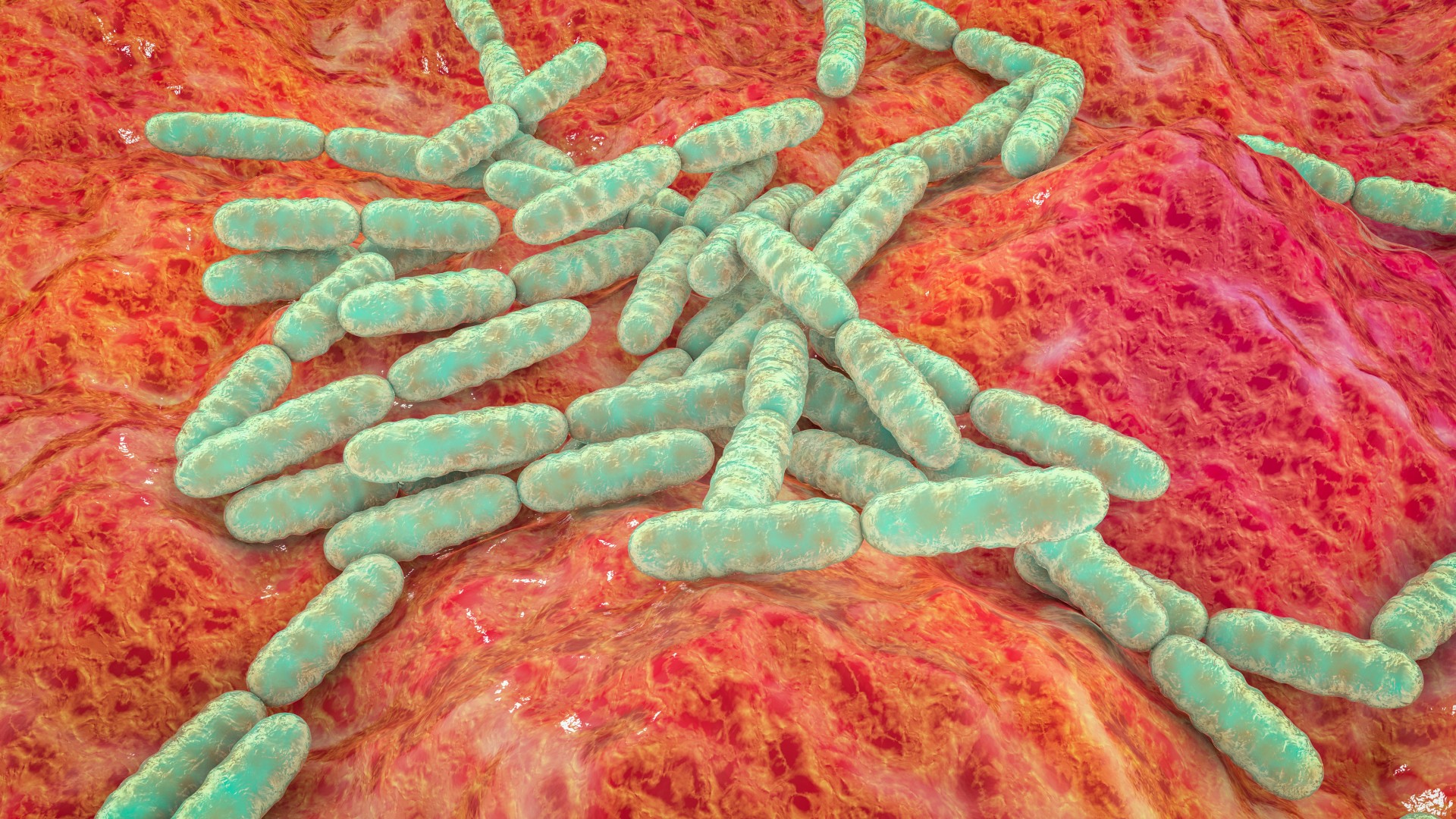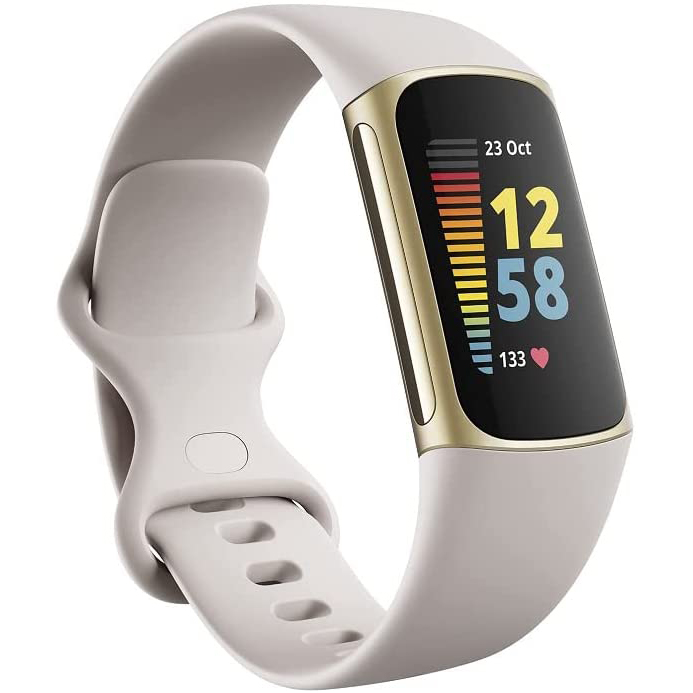The gut microbiome has a circadian rhythm. Here's how it might affect your health.
Daily fluctuations in gut microbes may have a plethora of effects on the body, but many questions remain.

The gut microbiome, a lively community of microbes that resides in the digestive tract, seems to run on a 24-hour clock. That may be really important for our health — but scientists are just beginning to learn why. Early research hints that the bugs play a part in myriad bodily functions, from regulating sleep to breaking down drugs.
Evidence suggests that, in adults, the abundance of certain microbes in the gut fluctuates daily. In other words, this flux follows a circadian rhythm, similar to the bodily processes that dictate when we sleep and wake up.
Recently, a study revealed that bacteria living in the guts of babies as young as 2 weeks old also have a circadian rhythm. The report, published in April in the journal Cell Host and Microbe, showed that this rhythmicity increases with age.
The researchers found that the microbes maintain these day-night rhythms even when they're extracted from the body and grown in the lab, suggesting that their rhythm is intrinsically regulated and thus not dictated solely by factors in the gut itself.
Related: Scientists may have found the missing link between heart disease and sleep problems
It's unknown why gut microbes behave this way, but their cyclical behavior may somehow help them colonize the human intestine, the study authors theorize.
"Everything in biology has a reason," which often relates to whether a given trait would help an organism survive, Dirk Haller, co-senior study author and a professor of nutrition and immunology at the Technical University of Munich, told Live Science. In regard to the gut microbiome, the microbial community has evolved alongside the human body, becoming a core feature of our physiology.
Sign up for the Live Science daily newsletter now
Get the world’s most fascinating discoveries delivered straight to your inbox.
The microbiome is beneficial to humans in many ways. For example, it helps protect us against infections by regulating the immune system and metabolizes parts of our food that we can't readily digest. The gut, in turn, provides microbes with a safe, warm place to live. There is therefore "extremely strong competition" between microbes for space in the gut, Haller said, and this competition drives the microbes to evolve.
Following this logic, microbes within the gut likely have a circadian rhythm because there was an evolutionary benefit to doing so, both for the microbes and for their human hosts. Haller and his colleagues' recent study sheds some light on when these bacterial rhythms might start to appear in a given person's body — but how might that circadian rhythm affect our health?
"This is the most open question," Vincent Cassone, a professor of biology at the University of Kentucky who was not involved in the new study, told Live Science.

Sleep, disease and drugs
Some past research has probed the circadian clocks of human gut bacteria, such as Klebsiella aerogenes and Bacillus subtilis. However, so far, most work in this field has focused on rodents' gut microbiomes. About 20% of microbes in the mouse gut are known to have a circadian rhythm, showing consistent fluctuations in their abundance at various points in the day. These microbes include bacteria in the orders Clostridiales, Lactobacillales and Bacteroidales, which are all also found in the human gut.
These bacteria are called "oscillators," said Dr. Eugene Chang, a professor of medicine at the University of Chicago who was not involved in the new research. Most produce byproduct molecules, called metabolites, that are absorbed into the bloodstream and are taken to other organs, including the brain, he told Live Science.
Once released into the blood, the metabolites can feed into the host's circadian networks and alter their function — for instance, they might influence the pattern and strength of activation of so-called circadian clock genes, Chang said. Scientists have tried disrupting this circadian cross talk in lab mice and have found that it affects physiological processes, including metabolism and inflammation.
Some findings in mice hint that byproducts made by bacteria in our own guts may influence our sleep-wake cycles. One called butyric acid is produced when bacteria digest dietary fiber and has been shown to promote sleep in mice. However, more evidence is needed to see if the findings actually translate to humans.
Related: 8 common sleep myths debunked
In a 2020 study of more than 4,000 people, Haller and his colleagues discovered that individuals with type 2 diabetes and obesity don't have the same daily variations in their gut microbiome as those without the conditions. This implies that there is a potential link between circadian rhythms and the microbiome in metabolic disease, but the reason why is still unknown, Haller said.
The internal clocks that govern gut microbes, as well as those of the host's cells, all interact in a complex manner and are also affected by external factors, such as when we eat, said Dr. Garret A. FitzGerald, a professor in translational medicine and therapeutics at the University of Pennsylvania who was not involved in the research. Theoretically, this "complex interplay" might be disturbed by diseases that affect the gut, he told Live Science in an email.
For instance, if cells that line the gut are damaged for some reason, this could influence how much of the breakdown products of drug metabolism end up in the bloodstream and affect other organs, such as the lungs, liver or brain, FitzGerald said. Our gut bugs play a role in how drugs are broken down and thus have a hand in this chain reaction.
There's an emerging scientific discipline called chronopharmacology in which scientists are investigating whether the time you take a drug can affect its safety and effectiveness. In addition to influencing people's sleep-wake cycles, bacterial circadian rhythms might partly dictate how the body reacts to a given drug.
Furthermore, bacterial circadian rhythms may affect the bugs' resistance to antibiotics. For example, research has shown that the concentration of antibiotics needed to kill certain bacteria, such as Staphylococcus aureus, changes at specific times of the day.
"Everybody tells us that we should take our drugs at certain times a day, Cassone said. "Maybe the gut microbiome and the human host have already known this — that certain times of the day are the best at which to get your vitamin B12, or your butyric acid for sleep or the like," he said.
Whether this is true or not is "probably one of the great mysteries that I think will be solved pretty soon," Cassone said.
Ever wonder why some people build muscle more easily than others or why freckles come out in the sun? Send us your questions about how the human body works to community@livescience.com with the subject line "Health Desk Q," and you may see your question answered on the website!

We have tested all the best fitness trackers and rank the Fitbit Charge 5 as the best for sleep tracking. This surprisingly light and compact smartwatch will provide you with a wide range of health stats to help you get a more restful shut-eye. Read our full Fitbit Charge 5 review for more.

Emily is a health news writer based in London, United Kingdom. She holds a bachelor's degree in biology from Durham University and a master's degree in clinical and therapeutic neuroscience from Oxford University. She has worked in science communication, medical writing and as a local news reporter while undertaking NCTJ journalism training with News Associates. In 2018, she was named one of MHP Communications' 30 journalists to watch under 30. (emily.cooke@futurenet.com)










